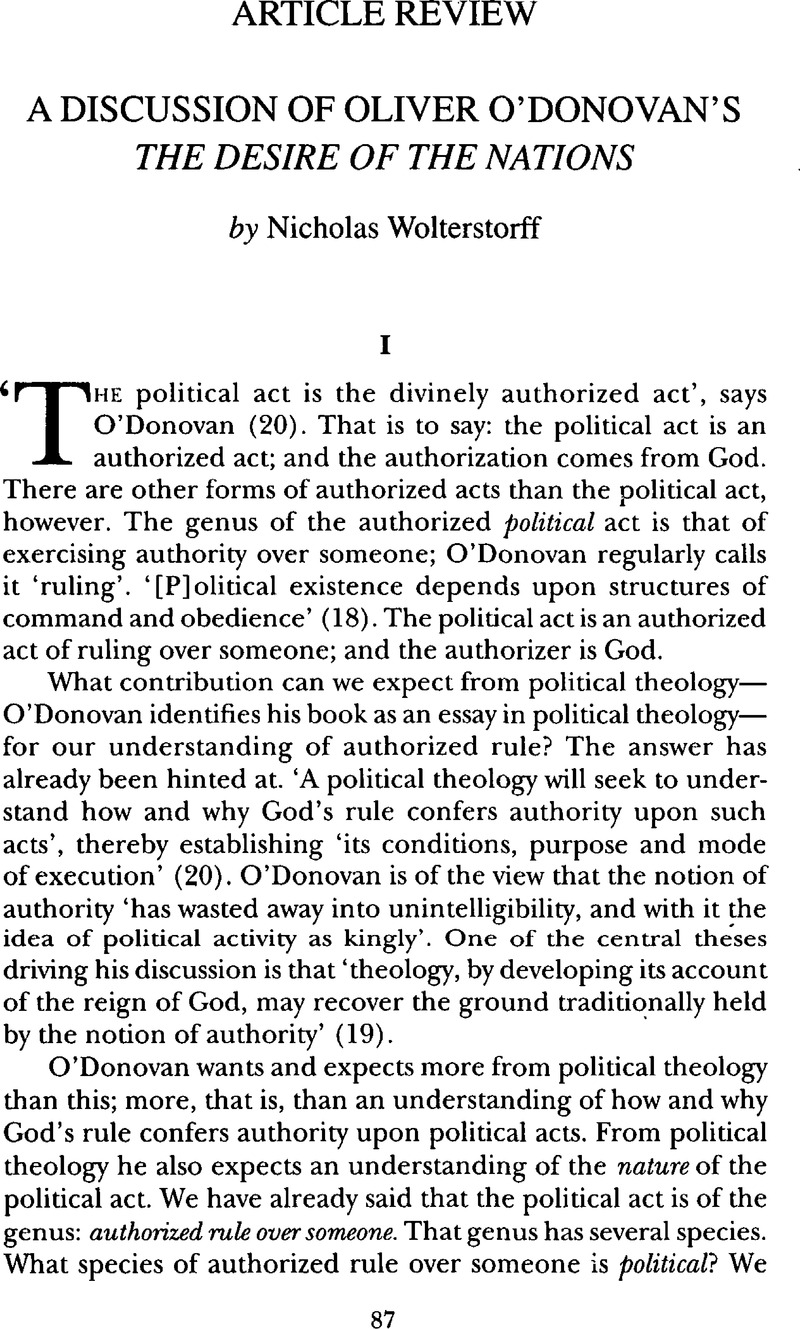Article contents
A Discussion of Oliver O'Donovan's The Desire of the Nations
Published online by Cambridge University Press: 30 January 2009
Abstract

- Type
- Article Review
- Information
- Copyright
- Copyright © Scottish Journal of Theology Ltd 2001
References
1 See my Divine Discourse (Cambridge: Cambridge University Press, 1995).Google Scholar
2 Cf. the remark that ‘YHYVH's law can be extended in principle to other nations than Israel’ (65).
3 O'Donovan introduces his analysis thus: ‘YHWH's rule over Israel, as we analysed it earlier…, was founded on his acts of salvation and judgment and on his gift of an inheritance. That is to say, Israel enjoyed its existence as a nation because YHWH overcame its enemies, ordered its common dealings by judgment, and secured its common possession of land and law. That same analysis will serve to clarify how God's Kingdom was demonstrated in Jesus' ministry’ (93). He summarizes his analysis, upon its conclusion, with almost the same words; see p. 113.
4 In his reflections on 1 Pet. 2:13–17, O'Donovan remarks that ‘the structures of secular government … are allowed to be an … institution that belongs to humankind as such, so that the common grace of God, rather than his saving purposes, forms the foundations of secular authority’ (149). I find no other acknowledgement in The Desire of the Nations of common grace.
5 ‘What has now changed is the privileging of [the judicial] aspect of governmental authority, so that the whole rationale of government is seen to rest on its capacity to effect the judicial task. Here, it seems to me, is a novelty not anticipated either in classical or in Old Testament sources. If one of the three elements of political authority could be seen as privileged over the others in ancient Israel, it must surely be that of possession. Government was given to safeguard Israel's existence in relation to the land and the law. Similarly in the classical world the end of government was the protection of the polis.… St Paul's new assertion is that the performance of judgment alone justified government; and this reflects his new Christian understanding of the political situation’ (148).
- 2
- Cited by


